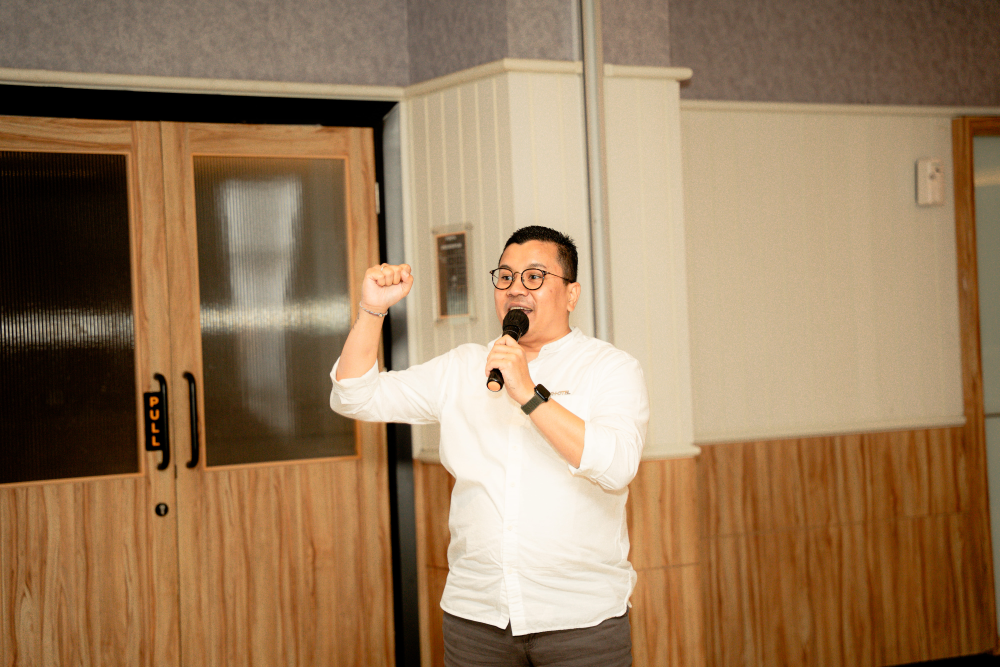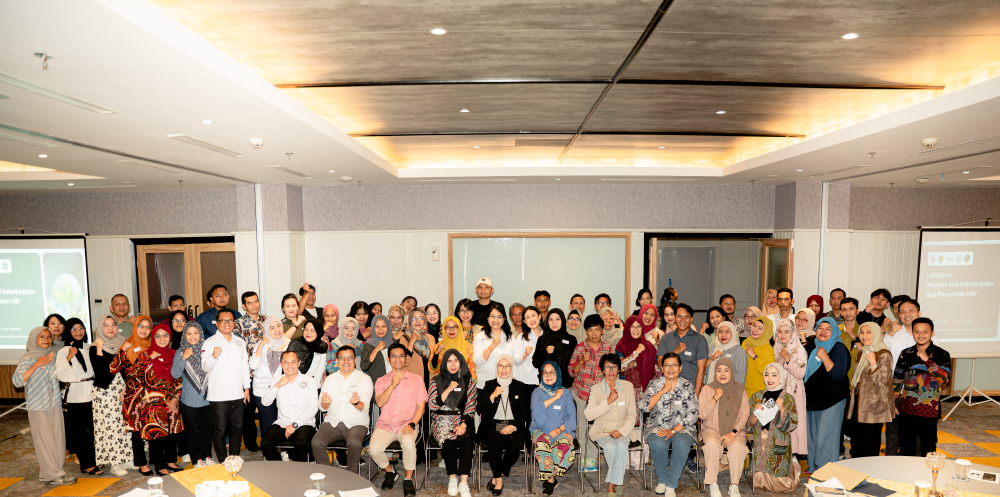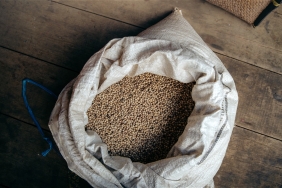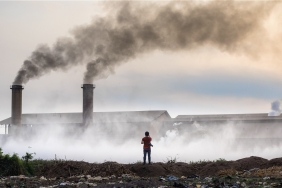EMBROIDERING HOPE FOR SUSTAINABLE COMMODITIES: WWF- INDONESIA HOLDS WORKSHOP WITH 60 COMPANIES IN YOGYAKARTA
WWF-Indonesia held another Sustainability Action Plan workshop that brought together hoteliers, restaurants, MSMEs, local entrepreneurs, and environmental activists in one forum held at PORTA by Ambarrukmo Yogyakarta. A total of 74 participants from 59 institutions attended to learn about sustainable commodities. Not only learning, but participants exchanged experiences, built commitments, and developed concrete steps towards a more environmentally friendly industry.
The Importance of Sustainability for Downstream Industries
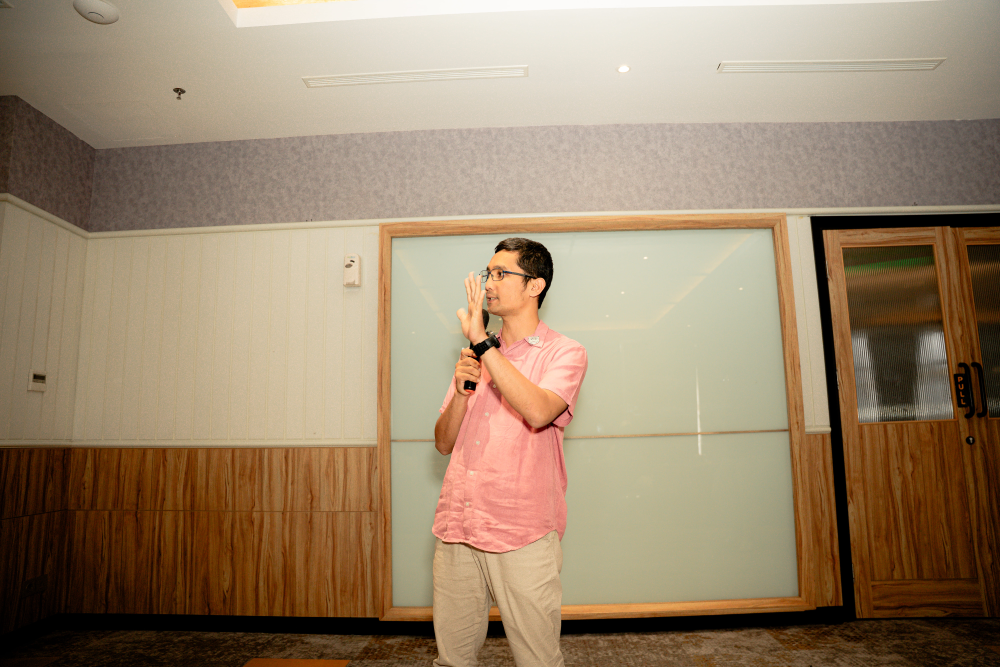
The workshop was opened by Angga Prathama Putra, WWF-Indonesia's Sustainable Commodities Lead. He invited participants to review the roots of environmental problems from a closer angle, namely, human production and consumption habits. "Ecological disasters are not far from cities. Instead, urban communities and the downstream sector have a big role in determining the direction of change," he said.
He highlighted how illegal palm oil clearing is destroying forests and threatening thousands of endangered species in Asia. Not only that, but the global food system also contributes to land transformation, water crisis, and climate change. The food that is wasted could meet almost half of the nutritional needs of Indonesians.
The solution doesn't have to be complex. "Use palm oil-derived products that are certified sustainable. That's a simple step, but meaningful," he said. He also emphasized the importance of building consumer awareness and strengthening market incentives to make environmentally friendly products more affordable and widely used.
Not Just a Discourse: The Real Strategy of the Special Government of Yogyakarta
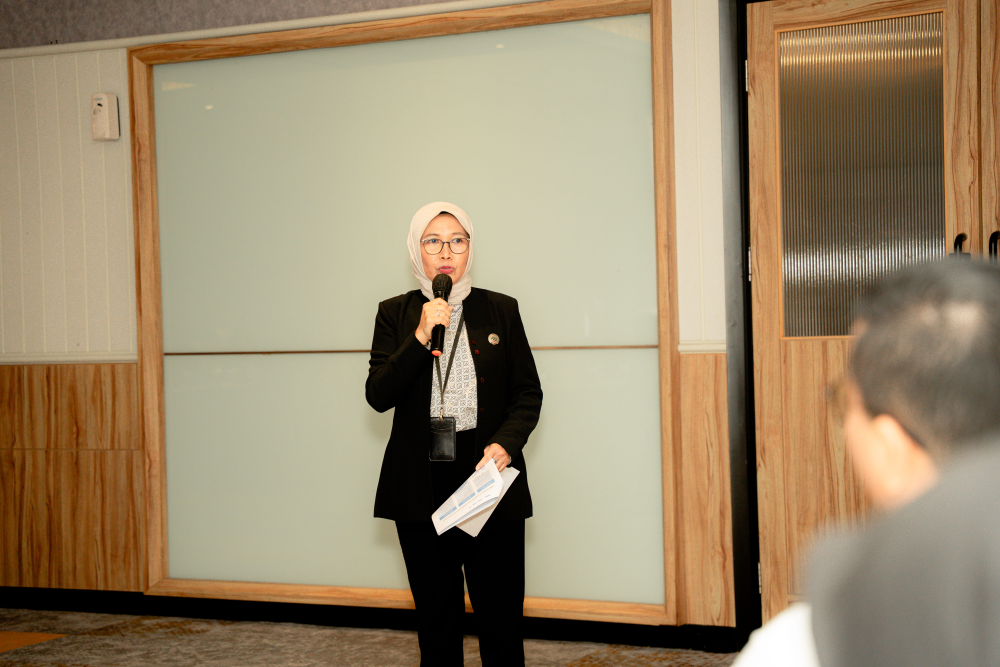
There's a lot of talk about the green economy, but the Government of Yogyakarta (DIY) is proving that they are going beyond discourse. In her presentation, Yuna Pencawati, SE, M.Si, as Head of the DIY Department of Industry and Trade, explained that DIY already has concrete regulations such as the Green Economy Regional Regulation and the roadmap for sustainable procurement of goods/services.
Sharing Experiences and Learning from the Sustainable Hotel Industry
In addition to WWF-Indonesia and DIY Disperindag, WWF Indonesia also invited Reza Farhan as General Manager of de Braga by ARTOTEL Bandung to share stories of how the industry can start implementing sustainability for their business. Transforming to an eco-friendly hotel is not an easy task, but de Braga by ARTOTEL proves it. Reza emphasized that sustainability is not just about changing to eco-friendly lights or air conditioners. The key lies in building an internal culture: creating an atmosphere of fun, fostering personal commitment, and collaboration.
"We build awareness from the team. We open a space for ideas. We invite everyone to be part of the solution," he says. Their hotel uses recycled wastewater to water the garden, filters its own water to reduce plastic bottles, and switched to cleaner natural gas.
Hotel de Braga by ARTOTEL has a partnership and commitment to using sustainable palm oil in their business, in line with the WWF's efforts. Reza believes that collaboration is key, as true success is not about going fast alone, but stepping up to grow and succeed together. Not only on a large scale, the spirit of sustainability also grows from small businesses that are slowly building real impact.
Sewing the Future of Industry Based on Collaboration with Sustainability Action Plan
To conclude the workshop, participants were asked to develop their own sustainability action plans. Starting from waste management, the use of certified raw materials, and other aspects.
From dialog to real practices and idea exchange, this workshop demonstrated that green industry transformation can begin anywhere - including from the will and synergy. WWF-Indonesia emphasizes that sustainability is not just an option, but the future direction of the industry that needs to be built from today.
